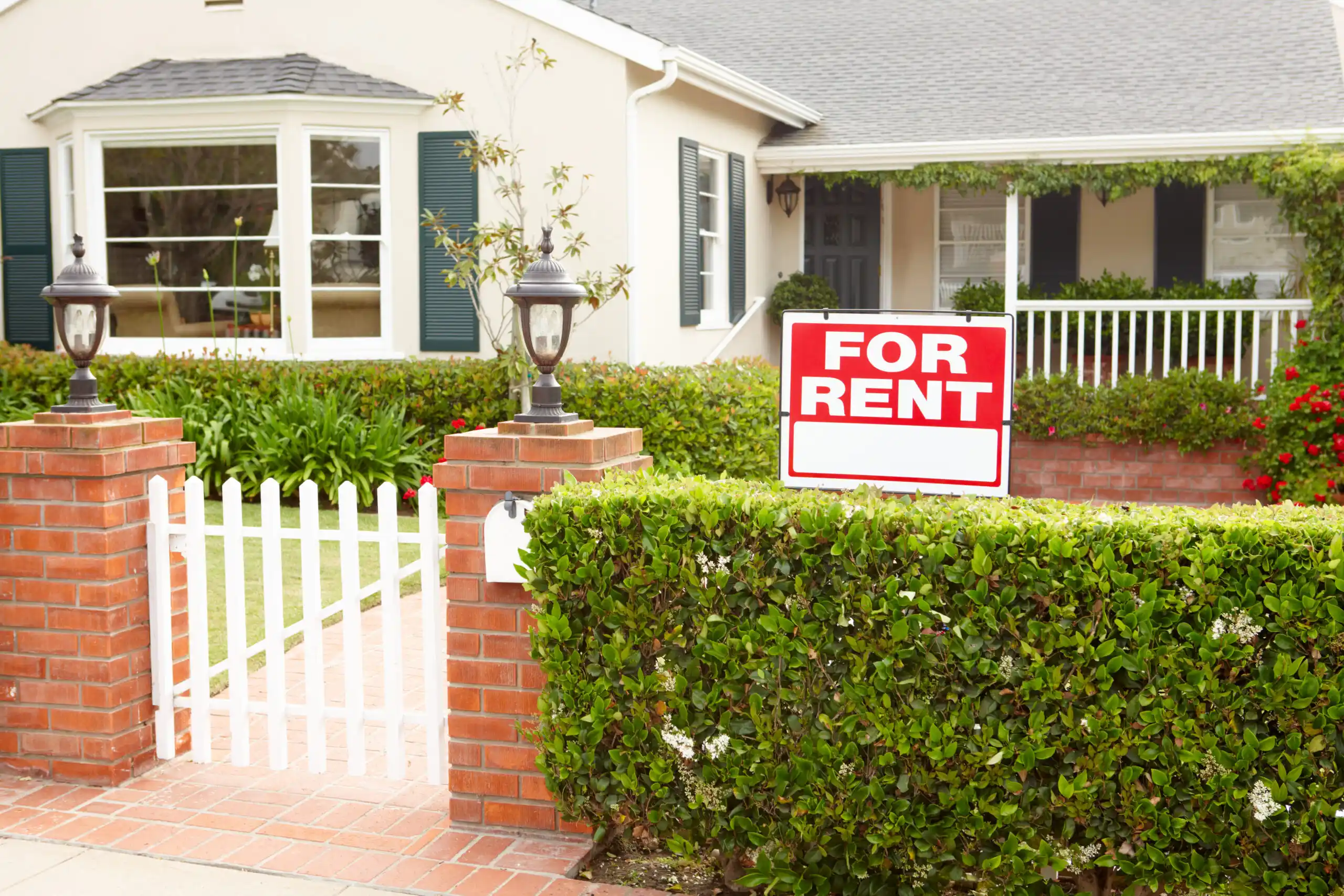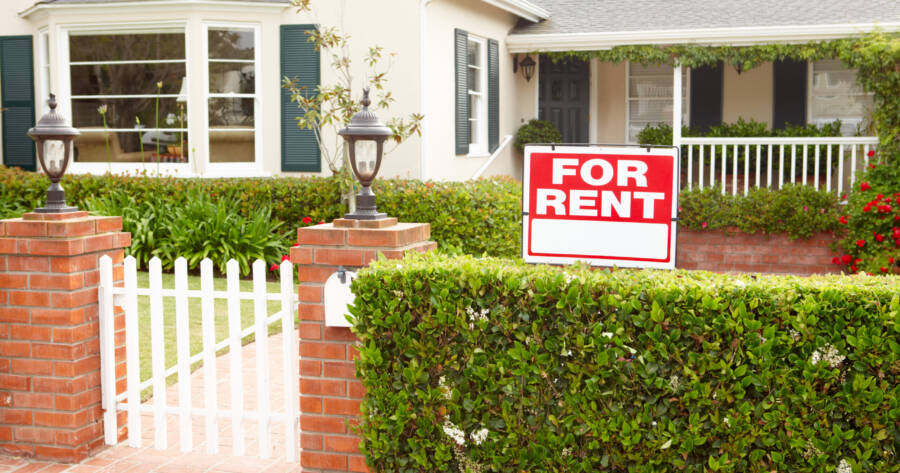Growing up, I always associated someone having a bunch of rental properties with being wealthy. After all, it’s a bit different than having a gigantic balance in your investment account. There are plenty of “stealth” millionaires. However, it’s a bit harder to hide the fact that you own multiple rental properties, with paying tenants.
I was listening to a financial talk show the other day. One caller, who was offering advice, claimed to have $22 million worth of rental properties. Wow! With real estate remaining an incredibly valuable investment, it’s no wonder that many people want to get into the landlord business. That includes me — I’ve always wanted to get into real estate investing. It’s much different than the stock market. When stocks go down in value, there’s always that fear of losing everything. On the other hand, owning physical land or brick and mortar buildings seems safer, in some way.
Do you want to be a landlord? It’s not as simple as sticking a “For Rent” ad on Craigslist and waiting for the rent money to start flowing in. Here are some steps you should definitely take before you list your rental and sign that first tenant.
Treat it Like a Business from the Get Go
Some people start their landlord journey by deciding to rent out their old home when they move up the property ladder. This can be a good way to get started, but you should do it right. It’s not ideal to have multiple properties under your own name. It can create legal or tax issues that you won’t enjoy dealing with. You don’t want to be held personally liable for a problem that one of your rental properties encountered. Your personal assets could end up dwindling in the event of a tragedy, lawsuit, or other unexpected event.
If you are planning to be a landlord, then run it like a business from the very start. This means setting up a legal entity, which usually means starting an LLC (limited liability company) to run your rental business. It’s a bit more cumbersome, but it’s also safer. It will separate your business finances from your personal finances. That means you won’t necessarily go bankrupt if your rental business fails for some reason. It can also be more profitable in the long run, so you might as well do it right from the beginning.
Talk to a Tax Professional
One of the benefits of setting up a separate business for your rentals is that you can legally make tax deductions for your business expenses. There are many tax deductions your properties could qualify for. You should discuss your options with a competent tax professional, before you decide to step into renting out a property. There are landlord deductions you can make. There’s also a property depreciation tax credit you might be eligible for.
Again, renting out your property — whether it’s your old home or one you bought as an investment — isn’t a simple side hustle. It’s a serious financial decision. You are basically starting your own business. It may only have a single employee at the start (that’s you), but that doesn’t make it something to take lightly. Remember that while you might only consider it a rental property, your tenants will call it their home. Treat any decision to rent out spaces you own with the seriousness it deserves.
 Shutterstock
ShutterstockDo Your Due Diligence on the Property
You want to make sure that you’re making money in this venture, right? Of course you do. I know many people that own multiple properties, but don’t really know how much they are making off each property. Or if they do, they forget to include costs like maintenance. Right now, many of them are getting bailed out because of massive price appreciation of houses. However, they probably could have made much more if they were willing to put in more work and run the numbers.
Are you trying to earn money from the monthly rent? Or are you merely using the rent to pay for expenses, while speculating that the value of the house will increase so you can sell it in a few years? It’s an important difference, so make sure you consider it. For the purpose of this article, I assume your primary motivation is to rent it out. That means having a positive cash flow for each property. It also means maintaining the unit properly, so that you can continue to rent it out long term.
It’s not a great business plan, for example, to buy a rental property, run it with a projected negative cashflow, and then hope that price appreciation will make up the difference when you sell. Don’t make this mistake.
Factor in Maintenance Costs
Don’t just look at the basics. Yes, there’s the obvious expenses — price of the property, property taxes, and insurance. But the costs don’t end there. Remember that your property will also need to be maintained regularly. That can mean basics like lawncare or infrequent expenses like replacing the carpets or painting the walls between tenants. Appliances, furnaces, and air conditioning units will inevitably break down from time-to-time. It all comes with a cost.
Over time, other things about the property may need to be updated as well. Cabinet designs and appliances may need to be changed to make your property more attractive. If you own it long enough, you may also need to think about replacing the shingles on the roof or the drafty windows. You might be hoping to offload the property before these major expenses pop up, but it’s a huge mistake to forget about them completely — especially if you’re in it for the long haul.
Hire a Real Estate Professional
If you are just starting out, then strongly consider hiring a real estate professional to help you with the whole process. Just like buying a property you want to actually live in, a real estate professional can be extremely helpful in buying a rental space. You’ll need a competent realtor to help you acquire properties anyway. Many of them will have expertise on finding the right tenants, as well.
Depending where you live, there may be different rules about buying a house to live in versus buying a house with the intention of renting. A real estate agent can provide valuable advice on this matter. They can also help make sure your potential new rental property doesn’t become a money pit, by helping you get legitimate appraisals and inspections. We know there’s a growing trend to skip using real estate agents and avoid paying the commission. However, they still bring plenty of value to the table, especially if you’re not a seasoned house buying veteran.
 Shutterstock
ShutterstockDon’t Be a Slumlord (But Don’t Be a Pushover Either)
Being a slumlord is basically trying to maximize every dollar of profit. This is usually done by refusing to put any of your rental revenue back into the building in the form of maintenance or upgrades. You likely won’t be able to sustain your business long term, since the properties will just lose value. You might still be able to charge market value rent, but it’s still a terrible (and arguably unethical) way to run a business.
On the other hand, you are inviting disaster if you become a pushover. Tenants will occasionally come up with all kinds of excuses or issues. Maybe the rent is continuously late or they routinely request repairs because they treat the property poorly. If you are too nice, you’ll just up paying for it out of your own profits.
For example, most rental contracts state there are penalties for paying the rent late. While you might be compelled to let it slide due to some short-term financial emergency, it can easily become a bad habit. Your tenants will start to realize you’re a big softie, and could use it to their advantage. It’s why there are some people who say they always get 3:00 a.m. maintenance calls for the tiniest of issues and others who say their tenants rarely call.
Like I said, this is a business. You are in it for the extra income. Please do make sure to treat people fairly, but also be prepared to stand firm when you need to. If you can’t do that, you may not want to get into the rental business. Or consider hiring someone to act as a middle-man. Which leads us directly into our next point…
Strongly Consider Hiring a Property Manager
Unless you’ve been a landlord for years (and have all the expertise and contacts to contractors to fix issues), it’s a good idea to find a third party to help manage your property. The easiest way is to work with a property management company. However, this option can be a bit expensive. You’ll might start to wonder why you’re paying them a percentage of the rent every month, especially during stretches where there are no issues. On the other hand, you’ll be thankful that someone else has to deal with the problems when they do eventually arise.
Some real estate agents might also help you manage properties. They normally charge a cheaper rate than a property management company. Don’t let the discount fool you, though. Some of them do this all the time, so they know how to get things done quick and efficiently. For example, my friend with multiple rental properties pays his realtor $100 per month, per property. The monthly rents are in the $3,000 to $4,000 range, though. Compared to a standard 8% cut from property management companies, the roughly 3% that the realtor charges is a bargain.
Get Insurance to Protect Yourself
You should have homeowner’s insurance for any building you own, whether you live in yourself or not. In fact, it’s probably required by your mortgage lender. However, those policies may not be fully adequate for properties that you are renting out. That’s where landlord insurance comes in. As with any sizable investment, it always pays to protect yourself and your assets.
Aside from covering the dwelling itself, you can also have insurance that protects you from lost rental income. This could be due to damage to your property or even from tenants who suddenly can’t pay rent. Additionally, you can (and should) get liability insurance. It’s used in situations where you are held liable for medical or legal costs if a tenant (or visitor) becomes injured due to a maintenance issue that you neglected to take care of in a timely fashion.
Don’t Underestimate Inflation
Have you ever heard a landlord explain how lucky they are to have found a reliable tenant that hasn’t moved out in 10+ years? I definitely have. However, these situations can have some negatives too. Most cities or states have laws about how much (and how often) landlords can raise the rent. So these long-term tenants may be paying a rent that is way below market value. That’s great for the tenant, but can be bad for you, the landlord. If rental increases can’t even keep up with inflation, then your profit margins shrink every year.
Inflation has been somewhat tamed over the past ten-to-twenty years. However, it’s never going away completely. Not raising your rent to cover inflation means that you’re technically offering a bigger rental discount every year. This can be a tough decision to make. On one hand, raising the rent every year to the maximum allowed amount will make you more money. However, your tenants might get upset at the constant price hikes and move out. While you can probably charge your new tenants more, there’s an additional cost to having constantly revolving tenants. Try to find a balance between maintaining your profits, while also being fair to your tenants.
How to Market Your Rental
So you’ve bought your rental house, set up an LLC business, spoken to a tax professional, hired a property management company, budgets in maintenance costs, and you’re ready to go. So how do you go about getting it filled and having those rent checks start flowing in? This is where some sales skills come into play.
Stage your rental unit and take some attractive photos. (A real estate professional is a great resource for this.) Write a detailed description of the living space, including any highlights. Are there hardwood floors? Marble countertops? Spare bedrooms? A large backyard? What appliances are included? Is there free parking? What’s the neighborhood like? All of these things can help attract the right tenant, who is happy to pay market value rent in exchange for a clean and well-maintained place.
 Shutterstock
ShutterstockScreening Tenants and Determining Rent
Speaking of tenants, screening for good tenants may be the single most important thing you do in your whole landlord business. Do the applicants show an ability to pay for rent? Do they seem like someone who will take care of the place they live in? What do previous landlords think of them? Are they erratic when you talk to them? One bad tenant can seriously dent any landlord’s profits, so take your time and filter your tenant applications properly. There’s a reason most landlords conduct reference and credit checks of potential tenants. You should do the same.
When it comes to determining how much rent to charge, you’ll need to do a bit of research. Start looking around for similar properties in the same area, and see what they are being advertised for. You’ll want to try your best to compare apples to apples, so check for similar square-footage or features. Then price your rental property accordingly. If you’re finding it hard to fill, that’s a sign that you’re overpriced for the market. You might need to reevaluate your expectations (and your budget).
Know Your Legal Duties as a Landlord
While you ultimately maintain ownership of the property while renting it out, tenants have rights too. We already discussed laws related to raising the rent, but there are other things to consider too. For example, tenants have certain rights to privacy and to not be disturbed. That means you can’t place security cameras inside the home or show up unannounced. Most jurisdictions require landlords to give advance notice if they plan to enter the home for any reason (except in cases of legitimate emergencies).
You may also need to get permission from a potential tenant before running a credit check on them. You may have to disclose whether something in their credit report caused you to turn down their rental agreement. If you encounter any disputes or issues in your role as a landlord, it’s often best to consult to a real estate lawyer to sort it out.
The Bottom Line
Some people get into the rental business believing it’s an easy passive income. They quickly realize it’s much more like getting a side job. However, those who do their due diligence, prepare properly, and find good tenants are able to build a really successful business. There’s a good reason why so many wealthy people are involved in real estate.
The beauty of having rental properties is that the hours are generally flexible. That means you might be able to get your rental business together all while having a regular job. On the other hand, rental businesses aren’t for everyone. They require a decent chunk of your time and effort, especially at first. You need to be very organized to make it all work properly. Ultimately, though, getting into the rental market can be a great way to build your wealth.
 Shutterstock
Shutterstock







